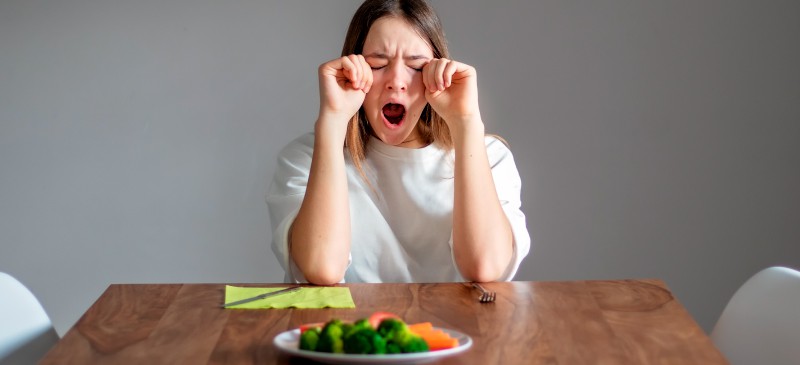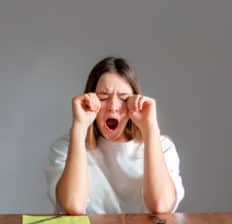This Dr. Axe content is medically reviewed or fact checked to ensure factually accurate information.
With strict editorial sourcing guidelines, we only link to academic research institutions, reputable media sites and, when research is available, medically peer-reviewed studies. Note that the numbers in parentheses (1, 2, etc.) are clickable links to these studies.
The information in our articles is NOT intended to replace a one-on-one relationship with a qualified health care professional and is not intended as medical advice.
This article is based on scientific evidence, written by experts and fact checked by our trained editorial staff. Note that the numbers in parentheses (1, 2, etc.) are clickable links to medically peer-reviewed studies.
Our team includes licensed nutritionists and dietitians, certified health education specialists, as well as certified strength and conditioning specialists, personal trainers and corrective exercise specialists. Our team aims to be not only thorough with its research, but also objective and unbiased.
The information in our articles is NOT intended to replace a one-on-one relationship with a qualified health care professional and is not intended as medical advice.
Why You Get Tired After Eating: Causes, Concerns & How to Stop
September 11, 2023

If you frequently feel tired after eating, you’re probably wondering if there’s anything you should specifically avoid or eat in order to lift your energy.
Feeling sleepy after eating is a common problem, one that many people experience post-lunch (hence the name “the afternoon slump”). This is also the same time of day when sugar cravings and a desire for caffeine tend to kick in, both of which are tempting because they can offset afternoon fatigue.
Rather than masking your tiredness with sweets and coffee, a better approach is to structure your meals in a way that helps sustain your energy. Below we’ll look at just how to do this, plus foods to limit that can zap your energy.
Why Am I Tired After Eating? (Causes)
What is it called when you get tired after eating? Another way to describe being in a “food coma” is postprandial fatigue, also called postprandial somnolence.
You’re most likely to feel this way after eating a big meal, especially one high in fat, refined carbs and/or sugar (once the sugar rush wears off).
If you find that your motivation and focus tank shortly after finishing a meal, you probably ask yourself, “Why do I crash after I eat?”
One of the main causes of feeling tired after eating is a drop in blood sugar (glucose).
After you initially eat sweets or refined carbs you experience heightened insulin levels, but a couple hours later levels fall as your “blood sugar crashes.” This can cause feelings of lethargy, fatigue, cravings and brain fog, although the severity of these symptoms varies from person to person.
Sugar and processed “white” carbs also cause more serotonin to be released, which is a “happy chemical” but one that can also make you feel relaxed and drowsy.
Other reasons you feel sleepy after eating include the way your parasympathetic nervous works and your circadian rhythm.
Your parasympathetic nervous system is the part of your nervous system that is in charge of “rest and digest” processes. It responds to you eating a meal by making you feel more relaxed.
As an article published in Time magazine explains, “animals—humans included—have built-in ‘vigilance signals’ that keep them awake and alert when hungry. These signals help them locate and acquire food. It follows that once an animal (or a human) has eaten a lot, these vigilance signals dissipate and are replaced by feelings of fatigue.”
Eating also causes blood to be rushed to your digestive system to help with digestion. It’s actually a lot of work for your body to break down food, and this process uses a lot of energy and can cause your mood and level of arousal to dip.
Your circadian rhythm, or “internal clock,” plays a role in your energy levels throughout the day, including after you eat. It’s considered mostly natural and “normal” to feel a little tired in the afternoon, usually around 2 p.m. to 4 p.m., which is a couple hours after most people’s lunch time.
You may actually be sleepy due to your normal circadian cycle rather than because of your last meal.
Should You Be Concerned?
While it’s relatively normal to feel a lag in energy after a big meal, especially in the late afternoon or before bed, if you chronically feel tired this can be a sign that another condition is at play.
Aside from feeling tired after eating, monitor yourself for signs of reactive hypoglycemia (when too much insulin is produced and released, usually following a sugary or carb-heavy meal). Usually these symptoms kick in about three to four hours after a meal.
If you experience muscle weakness, feelings of nervousness, pale skin, shakiness, sweating and lightheadedness, then speak with a doctor for further investigation.
Another set of symptoms to be aware of is those caused by food allergies/sensitives. If you frequently feel like you have brain fog throughout the day, mood swings, signs of inflammation like skin rashes or breakouts, digestive issues, and joint/muscle pain, then talk to a specialist about whether or not you may be experiencing an allergic reaction.
How to Stop Getting Tired After Eating
What are foods that cause fatigue?
You want to avoid consuming too many carbs (especially refined carbs) and sugar all at once, without enough protein foods, fiber and fat to balance things out. Big, heavy, high-fat meals — those that include fried foods, fast food and processed meats — can also wipe out your energy since these can take a while for your body to digest.
For some people, a food sensitivity may also contribute to post-meal sleepiness. Potential food sensitive or allergens can include wheat/gluten, dairy, nuts or shellfish.
Of course, alcohol can also diminish your mood and ability to focus, so skip the alcoholic drinks if you know you need to be up and running.
Why do you get tired after a big meal, and is it better to “graze” instead?
Meal timing really comes down to preference, since every person is a bit different. Some prefer to eat two to three meals per day, for example, if they’re practicing intermittent fasting, while others do best eating about every three to four hours.
Do some experimentation to see which schedule suits you best. You might be someone who benefits from eating three smaller meals and one to two snacks daily, since these smaller meals can put less pressure on your digestive system.
Which type of meal composition is best for preventing fatigue?
Overall, aim to strike a balance by including some high-fiber foods, healthy fats, protein and vegetables. Be careful not to load up on refined carbs like pasta dishes, cereal, grain bowls without protein, noodle dishes, sweets, etc.
When in doubt, add some vegetables to a protein dish, such as sautéed chicken or fish, and incorporate some fat, such as olive oil or avocado slices, to round things out. Keep in mind however that too much protein causes some people to feel lethargic, possibly because of increased release of tryptophan, an amino acid found in protein foods like turkey, milk, meat and eggs that triggers serotonin production.
What foods are best for lifting your energy?
Focus on eating enough protein first and foremost, such as:
- poultry
- grass-fed meat
- eggs
- yogurt
- fish
- plant proteins like beans and nuts
Complex carbs, such as whole grains, vegetables and fruit, can also give you a quick supply of energy — just don’t overdo it.
Foods that supply you with B vitamins, like B12 and B6, vitamin D and iron can also help support higher energy levels. B vitamins and iron are especially important for supporting digestion and metabolic processes that convert the nutrients in your diet into usable energy.
Finally, make sure to stay hydrated by drinking plenty of water (and not too much caffeine, alcohol or sugary drinks), since hydration is key for feeling your best.
When to See a Doctor
Aside from improving your diet, including by adjusting when and what you eat, you can also help fight fatigue by:
- focusing on getting enough sleep
- managing stress
- getting sunlight exposure during the daytime
- exercising (for example, a post-lunch walk outside or a short workout and stretching can often help fight off sleepiness)
If these strategies don’t help, it’s a good idea to visit your doctor about testing for food sensitivities, a thyroid issue and other potential health conditions, such as anemia, that may contribute to your tiredness. This is especially important if your fatigue interferes with your ability to work, attend school, parent, exercise, etc.
Your doctor can run several tests to check for signs of inflammation inside the body, including within the gastrointestinal tract, that may indicate an underlying cause of fatigue. You may also need a hormone panel test to check your thyroid and potentially other tests to rule out issues like nutrient deficiencies.
Additionally, it may be recommended that you keep a food journal in which you record when and what you eat. This way you can form patterns and identify potential “trigger foods” or combinations.
Conclusion
- Why do you get tired after you eat? One of the most common causes of getting tired after eating is an imbalance in blood sugar, usually from eating refined carbs and sugar without enough protein, fiber and fat. Heavy, fatty meals, big meals and the time of day can also contribute to your tiredness.
- If you get tired after eating lunch in the afternoon, it might simply be due to your circadian rhythm cycle. However, you shouldn’t feel so drained that you can’t focus. See a doctor if you also deal with signs of inflammation, GI issues or pain.
- To help prevent feeling sleepy after eating try eating balanced meals more regularly, such as every three to four hours. Drink plenty of water, and avoid too much sugar, alcohol, caffeine and processed grains.




